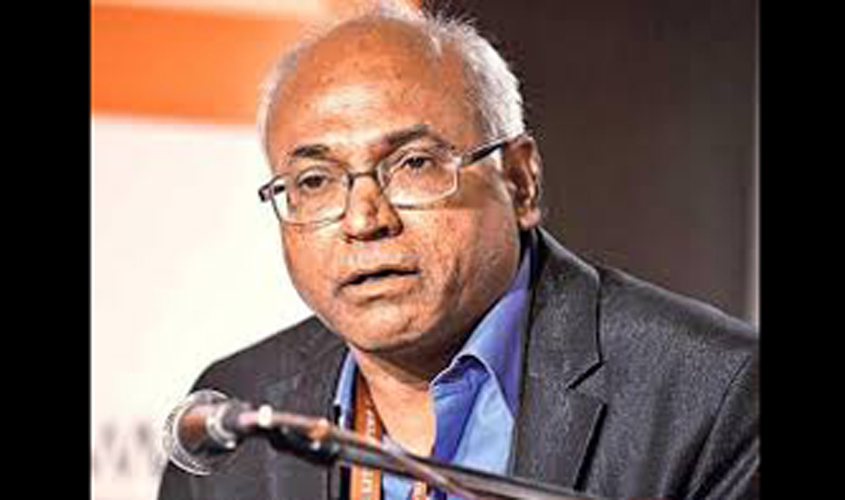Prominent “Dalit-Bahujan” writer Kancha Ilaiah has sought protection from Hyderabad police as he received “death threats” after his Telugu book, Samajika Smugglerlu, Komatollu (Vysyas, or Banias are Social Smugglers) was released last week. Ilaiah complained to the Hyderabad police on Tuesday that anonymous callers threatened to kill him. His mobile phone is now switched off. However, both TRS and TDP, ruling parties in Telangana and Andhra Pradesh, respectively, have suggested that he should tender an apology to the aggrieved Vysyas for his book.
The book has mobilised the hitherto docile Vysyas, mostly kirana shop owners and small traders, in the last one week to hold rallies and demonstrations in both Telangana and Andhra Pradesh. As many as 30,000 Vysyas joined a protest rally in Miryalaguda in Telangana, while 25,000 held a meeting in Kurnool in AP. Arya Vysyas, who are popularly called Komatollu in Telugu, have lodged dozens of criminal cases against Ilaiah in both Telangana and AP, in protest against his book which accused them of exploiting the poor, amassing ill-gotten wealth, avoiding joining the armed forces, etc. Several Vysya outfits burnt Ilaiah’s effigies and demanded his arrest.
AP Chief Minister N. Chandrababu Naidu told a delegation of Vysyas that the author should apologise for his writing and suggested that people should not read such books. In Telangana, Irrigation Minister T. Harish Rao said that Ilaiah should apologise to the Vysyas for the abusive title of the book. TRS MLA Beegala Ganesh Gupta described the book as “full of poison”.
Ilaiah said that he was ready for an ideological debate on his book, but would not apologise. “I have done no crime, why should I apologise?” he said in a statement. Ilaiah’s defence of the book is that the phrase “social smugglers” was not derogatory, as he was simply conveying the message that Vysyas had not done anything for the overall benefit of society. Ilaiah urged the caste’s intellectuals to write another book to counter his, instead of threatening to kill him.
Some Dalit and OBC groups and Left parties are supporting Ilaiah. Kaki Madhava Rao, former chief secretary of AP, singer Gaddar and CPM Telangana secretary Tammineni Veerabhadram are seeking police protection for him.
The book is part of a series of Telugu translations of his 2009 English work, Post-Hindu India, and comes close on the heels of Ilaiah’s writings against Brahmins and some other upper castes.
64-year-old Ilaiah retired from Osmania University’s political science department eight years ago and is currently associated with Maulana Azad Urdu University’s Centre for Social Exclusion and Inclusion Programme in Hyderabad. Though he is often described as a Dalit ideologue, Ilaiah is an OBC of Kurma caste, a variant of Yadavs in Telangana.
Ilaiah, who recently added the suffix “Shepherd” to his name, kicked off a storm two decades ago for his tirade against Brahmins through his book, Why I am Not a Hindu. Ilaiah stated that the vast majority of OBCs, Dalits and tribal population had nothing to do with Hinduism, which was a cultural monopoly of Brahmins and other upper castes. Around three decades ago, Ilaiah was associated with the ultra left groups, through the Organisation for Protection of Democratic Rights, which was connected with a CPI(ML) group, Unity Centre for Communist Revolutionaries in India Marxist-Leninist. Ilaiah distanced himself from the ultra left after OBCs got reservations in early 1990s. He then chose to side with Dalit and Bahujan politics.
Initially, Ilaiah was an admirer of Narendra Modi when the latter became the Chief Minister of Gujarat for the reason

